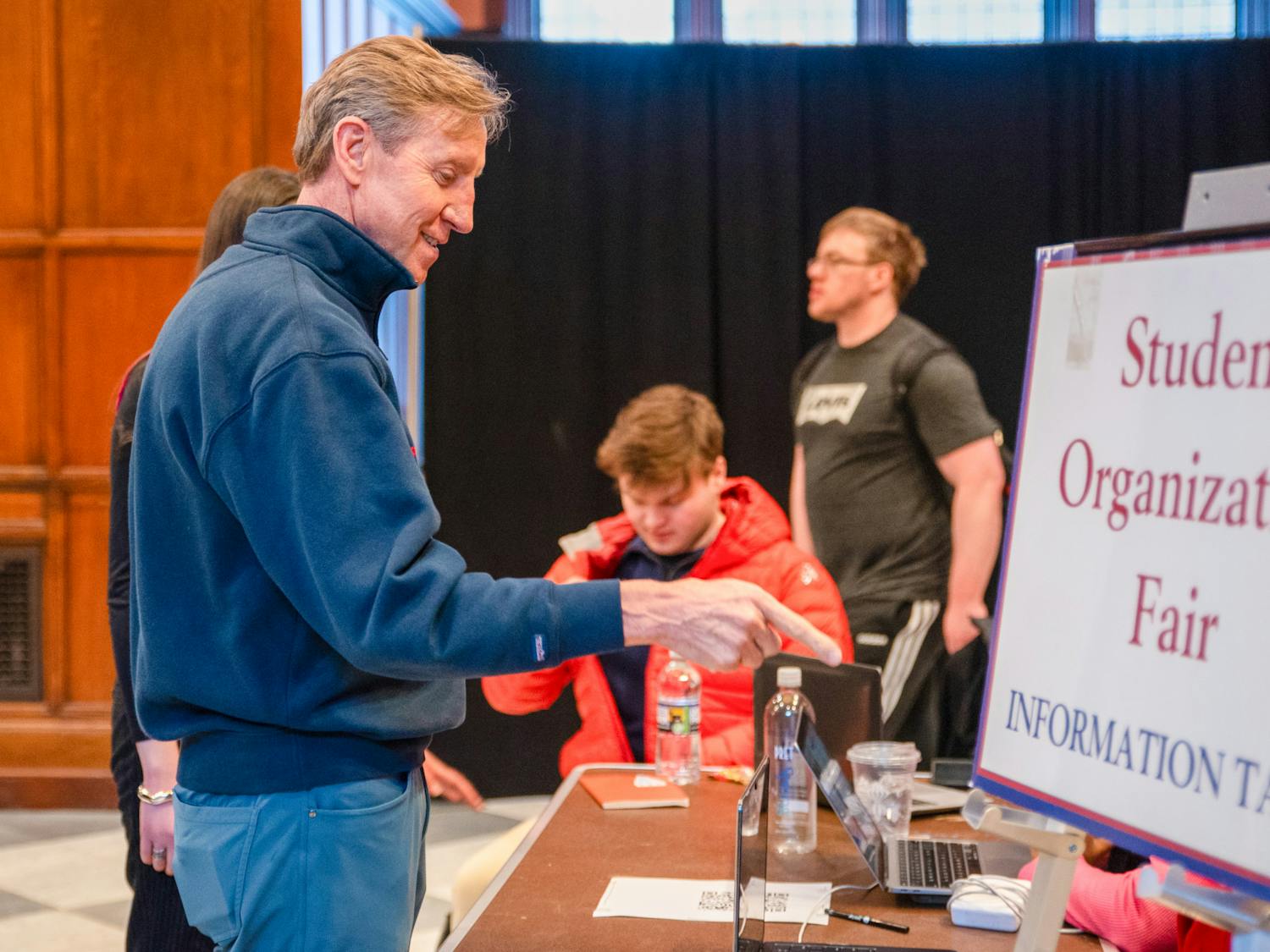Editor's Note: This semester, columnist Rebecca Alifimoff will continue to provide her thoughts and observations on the issues affecting Penn students, but will do so all the way from Paris!
This summer, I took an Instagram cleanse. In general I’ve been trying to cut social media out of my life, at least on a temporary basis, until I can reconstruct my relationship with the internet in a more healthy way. I realized that the internet, which in high school had seemed like a glittering oasis of information, connection, and self-expression had become, for me, an echo chamber of my own narcissism and anxiety.
I spent the summer working in the Rare Books Library in Van Pelt. Emptied of people, campus felt different, like I’d suddenly been dropped into an alternate dimension where everything looked the same but was somehow essentially different. Devoid (mostly) of the chatter of social media, the inside of my head felt different too.
This is the part where I’d love to say that deleting Instagram made me less of a narcissist. It would be great if I could tell you that during my summer without social media I became a kinder person, a better friend, did battle with my insecurities, and cleaned my room.
That’d be great! But I can’t.
Deleting Instagram didn’t solve any of my problems. All it did was create a bit of space inside my head. And for a while, instead of echoing around the internet, my thoughts just bounced around my skull at a frightening velocity.

So then began the hard work of trapping my thoughts, slowing them down, and trying to rebuild them in a way that would actually make me kinder, more thoughtful, and less self-centered.
SEE MORE FROM REBECCA ALIFIMOFF:
When I started getting ready to go abroad, I seriously thought about whether I wanted to download Instagram again. After all, I was going to Paris, and the allure of tastefully filtered shots of the sun setting behind the Eiffel Tower, boxes of pastel macarons, and boomerangs of clinking champagne glasses seemed too hard to resist.
Here’s the thing: I want to be a more present person. I also want a super-cute Instagram profile. I’m trying to focus on being a person of genuine quality, but that doesn’t mean that I’ve stopped craving the glimmer of social media superficiality.
There is an urge to conflate our social media profiles, and the social media profiles of others, with the reality of our lives. More than once, I’ve had to stop myself from judging people’s characters by their Instagram posts, but the truth is that the two sometimes have little correlation. Logging off Instagram didn’t make me a better person, in much the same way that getting back on isn’t going to make me a worse one.
Instagramming my way through Europe likely won’t substantially change my experience. Sure, I might have less storage on my phone and a few more Instagram posts when I come back to Philadelphia, but the work of being present and open to new experiences is work that happens independent of the internet, not in spite of it.

This summer, I was working my way through the backchannels of Netflix when I came across something that struck me. There’s a moment in Bo Burham’s 2016 comedy special “Make Happy” where the pretense of the traditional comedy show slips away completely. Burnham, the comedic wunderkind who rose to fame because of Youtube videos he made in his bedroom in high school, sits on the stage and ponders the psyche of the internet generation.
“What do we want more than to lie in our bed at the end of the day and just watch our life as a satisfied audience member,” Burnham said. “I know very little about anything, but what I do know is that if you can live your life without an audience, you should do it.”
For a moment, the camera cuts away from Burnham’s face to a wide shot of the audience. It’s a moment of simultaneous sincerity and absurdity. Burnham is performing a doctrine of non-performance.
The urge to document and perform our lives existed before social media and will probably exist in whatever wasteland remains after social media. After all, what is Ernest Hemingway’s famous memoir of his time in Paris, “A Moveable Feast,” if not a carefully filtered and cropped version of the truth? It’s not the performance that builds the contours of our lives, but rather what happens in between the snapshots and the posts. You know, that thing, life. It’s super easy, and I’m sure we’ll all figure out how to get the hang of it sooner rather than later.
In the meantime, if you need me and you can’t find me, check my Instagram story.

REBECCA ALIFIMOFF is a College sophomore from Fort Wayne, Ind. studying history. Her email address is ralif@sas.upenn.edu.









